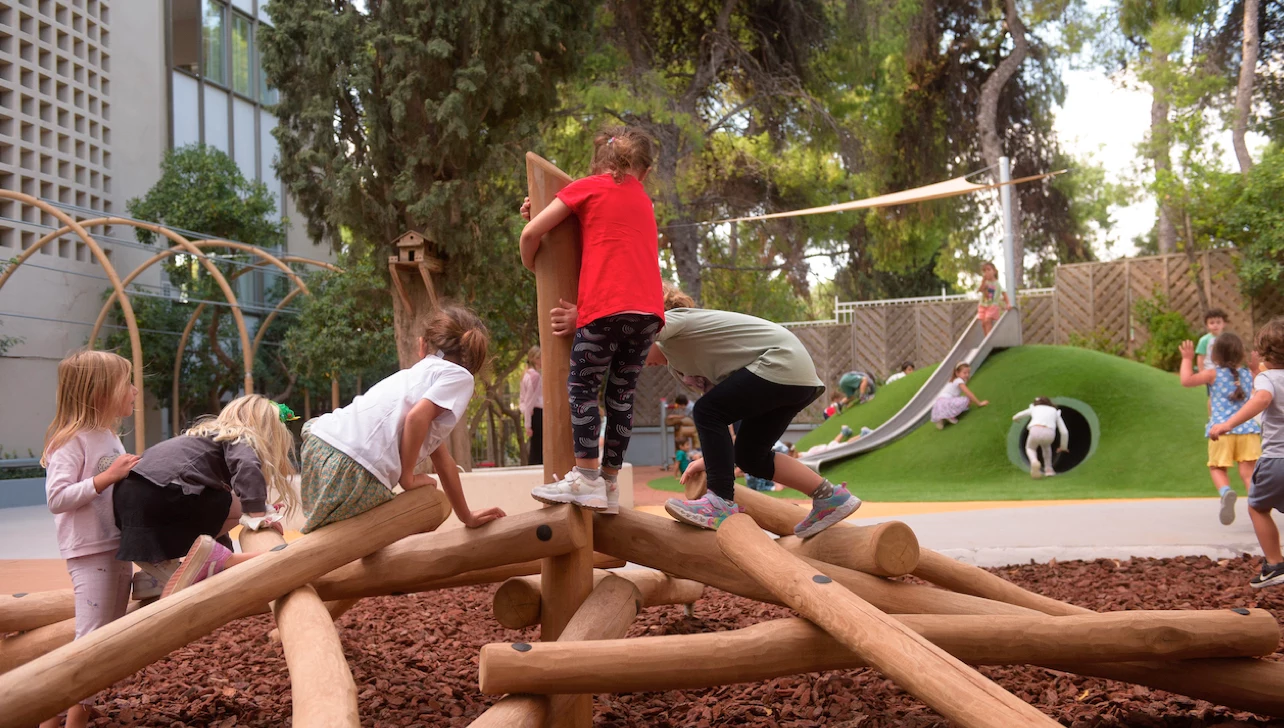How Evenly Brings Inclusive Communication Within Education

As a British employee of a Greek start-up, having a 200+ day Duolingo streak in Greek will only get you so far when it comes to feeling included in the conversation. That’s why I’m blessed to work for a company like Evenly, where inclusive and accessible communication is at the front and centre of everything we do.
But as the saying goes: ‘You can lead a horse to water, but you can’t make it drink.’ As important as our quest for a more just, interconnected and harmonious society is the willingness of our clients to embrace it.
A couple of weeks ago, Moraitis School lived up to that exactly. As one of Greece’s most prestigious schools, they asked us to provide automatic Greek, English and Spanish subtitles for their conference ‘Η Αυλή του Σχολείου, Αλλιώς’ (Τhe Schoolyard, Differently). English and Greek subtitles were displayed on the main screen behind panel speakers, alternating based on the speaker's language—when someone spoke in Greek, English subtitles appeared, and vice versa—whileall three remained available to attendee’s via QR code.
The conference focused on the intersection between pedagogy and architecture, and Moraitis harnessed Evenly to facilitate knowledge sharing between Greek and international experts of both realms. The importance of the learning environment’s design in childhood development was apparent throughout. As architect and professor at the National Technical University of Athens (NTUA) Stavros Giftopolos put it:
The environment has the power to shape the thought, to strengthen the sense of belonging, and to offer security to the students.’
National Technical University of Athens
His message, clear: How we design and experience educational infrastructure affects how younger generations will build tomorrow's society. How can we expect them to foster fairness, inclusion and trust if these same values are not present in their educational surroundings?
And this begs a new question: What steps can we take to accomplish this in a dynamic world? Marianthi Liapi, architect and researcher at the Technical University of Crete (TUC), provided an answer that perfectly captures our mission at Evenly: ‘…technology can help us re-shape the way we think when it comes to solving big problems. It exists as a tool to help us become more creative in tackling them.’
Using our software to understand in real-time Ms. Liapi’s contribution to the discourse, in a language I can’t currently understand felt like the embodiment of her point. Her colleague at TUC, professor and lecturer Kostis Oungrinis, complemented with his observation: ‘It’s not something that requires a lot of investment… what’s essentially needed is for a movement to be created.’
He was referring to the importance of a cultural shift—one that values actions over words. Often, industries and institutions engage with ESG frameworks merely to project adherence to values rather than instil genuine cultural change. Whilst technology isn’t the definitive solution, cases like Moraitis show it can help pave the road toward a more inclusive and fair society for future generations.

